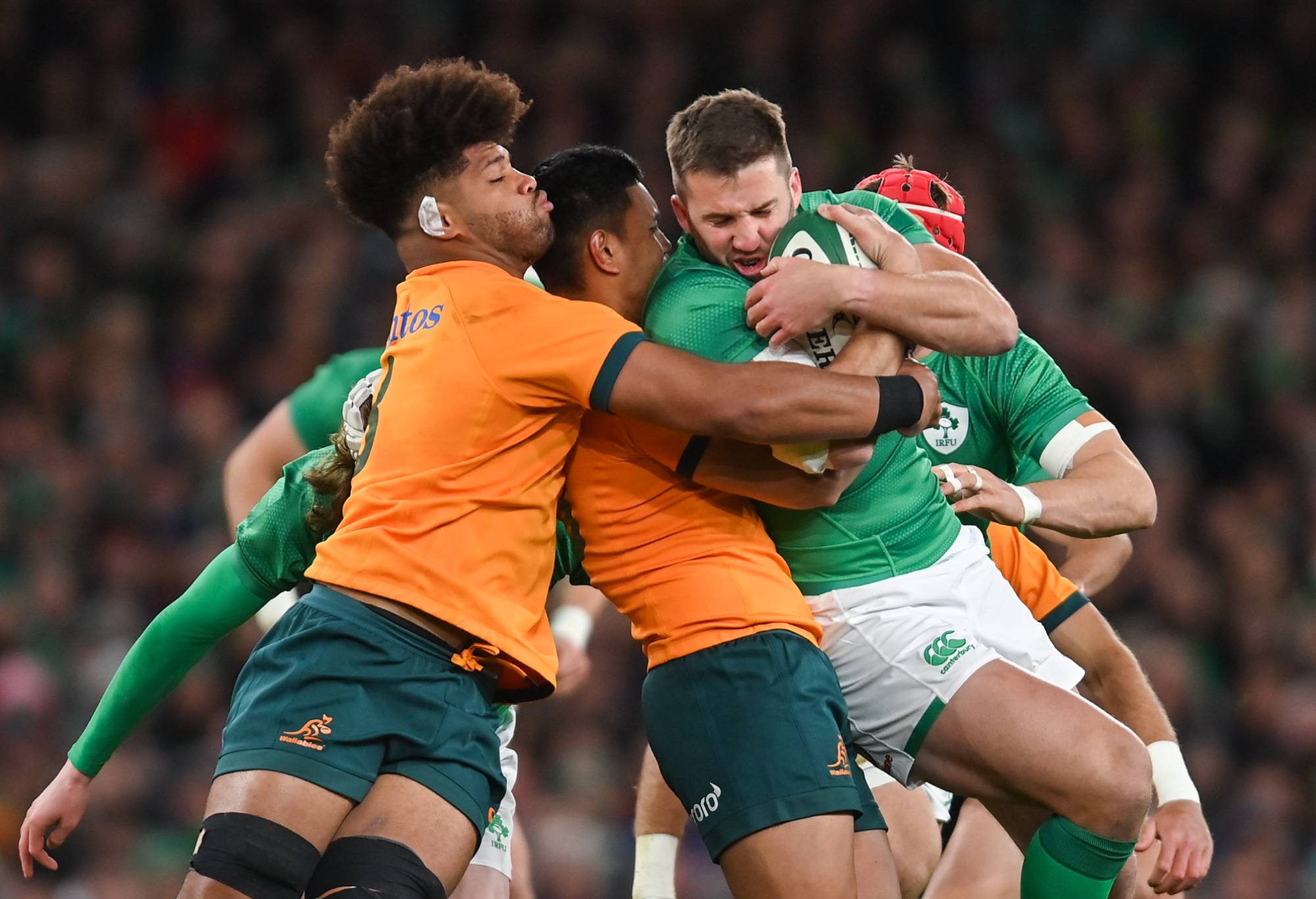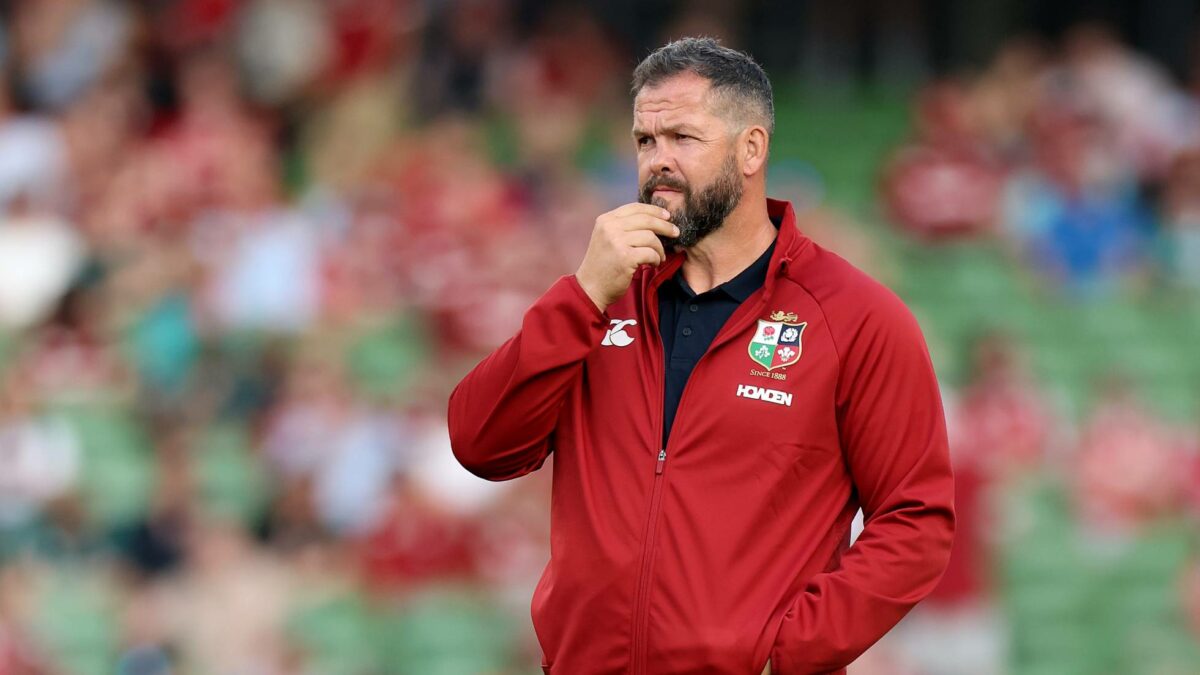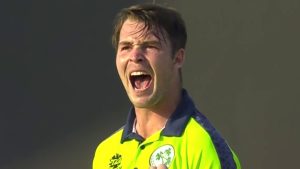When the British and Irish Lions make the long trek south they are invariably underdogs, innocents abroad. Often they face a recent world champion, given the nine Cups shared between the hosts.
This time in Australia is different.
The Wallabies are ranked eighth in World Rugby, after a redemption season last year under new coach Joe Schmidt who tried to restore the team from a 2023 best forgotten.
Thus, Andy Farrell’s group is supposed to win (and handily). If ever a Lions team should have felt like the boss, this is the one.
Even a prohibitive favourite can lose, as the Leinster spine of this Lions squad learned at the hands of their erstwhile Saints teammates. However, behind the upset is almost always a clear reason: a listless Mike Tyson facing Buster Douglas in the nick of his life, the complacent champ without even ice packs in his corner. And a long count. Japan had the fastest scrum in-and-out in history at Brighton. Coaching genius at 5000 to 1 Leicester City.
A Wallabies win would not rank with these notables, but it would surprise most (especially dismissive Ben Youngs) because both Ireland and England and maybe Scotland would individually be favoured in a series versus Australia, and now, the spectre of peak Finn Russell (and his growing synergy with superb Jamison Gibson-Park) pitted against either Ben Donaldson or young Tom Lynagh (or Tane Edmed or James O’Connor in extreme plot twists).
How could the Wallabies flip the script? What is the best way to either force the Lions into places and shapes they find uncomfortable or take a page from the Saints and just beat them at their own game?
The Good Irish News
All is not gloomy.
The dominant team (and coaching cohort) within the Lions — Ireland — does not match up as well with Australia as the rankings suggest.
Yes, Ireland has won six of their last seven games against Australia but their widest winning margin was five points, and four of the wins were by three points, far closer than the odds set by bookmakers and pundits. Each time, the Wallabies disrupted the Irish ruck, the foundation of their recent success: usually dependent on extraordinary number and speed.

Ireland players celebrate as teammate Gus McCarthy, partially hidden, scores their side’s third try during the Autumn Nations Series match between Ireland and Australia at the Aviva Stadium in Dublin. (Photo By Ramsey Cardy/Sportsfile via Getty Images)
In addition, Aussies have tended to hold Ireland significantly below their season average in scoring, creating games decided in the teens or 20s; Ireland has not reached 30 in those last seven tilts.
In a way, the manner in which Ireland plays (that tends to trouble both France and South Africa, who do not stock an out-and-out fetcher) is suited to the Wallabies to thwart.
In one of my forays to Sydney, I went to see a couple matches at Easts. I was struck by how often the flanks on all teams played to the ball and forced extra cleans or a whistle. It was almost at every breakdown, in the rain, and more often rewarded than it would be in Limerick, I think.
Why not, in the land of George Smith and David Pocock; and now Fraser McReight and Carlo Tizzano (and let us not forget Charlie Gamble)? More rucks, more chances to muck a ruck up; slow it, stymie it, steal it, or even free exit or entry by jackal.
In contrast, England (even when not in the top four) have won ten of the last dozen contests with the Wallabies, largely relying on timely kicking, big set piece, dominant gainline, and rugged defence by players like Maro Itoje, Ellis Genge, Tom Curry and proper blindsiders.
Scotland has won four of the last five with cutting-edge attack, but more simply and quickly than the methodical Irish setup; the long pass a feature in their style.
The other reason basing the Lions’ attack on Ireland’s intricate pods and need for all players to be in just the right place at just the right time might be a double-edged sword, is the Lions are in a race against time to have a shape and plan ready.
So far, these Lions have not been getting smoother in execution. Their turnover ratio from game one (Dublin) to five (Canberra) has gone +3, +1, -2, -11, -6 fueled by an extraordinary amount of attempted offloads and ruck builds in the high 80s.
In the two worst games, the Lions have thrown 232 and 216 passes, numbers off the charts. In the three closest games, they have hogged the ball (57-61%) but have been wasteful in the red zone.
Along the way in Australia, tries conceded have risen: 1, 2, 2, 4.
Farrell has not appeared his happy self; often more disappointed than the coaches in the losing dressing rooms. A fascinating scene in the Lions’ YouTube documentary series shows a subdued Farrell talking to his downcast team in Sydney. In the background, the Waratahs can be heard having a royal party (and perhaps burning my ill-fated essay).
Can Farrell pick a mostly Irish team (Andrew Porter, Dan Sheehan, Tadgh Furlong, Joe McCarthy, Jack Conan, Gibson-Park, Bundee Aki, Garry Ringrose, James Lowe and now, Hugo Keenan all seem likely) and expect those ten men to forget baked-in Irish ways and learn to play an English power-percentage and kick-chase-counter game with pace.
Therein lies the trap.
When the heat is on, players tend to revert to what they know, and how they’ve practiced and played for ages. Be Irish, play Irish. This is the ironic lifeline for the Wallabies.
Just as the Tahs’ Gamble and the Brumbies’ Rory Scott and Luke Reimer (and the Pumas’ loose forwards) almost licked their lips as the Lions launched attack after attack into their waiting arms; McReight and Tizzano will fancy their chances to negate gaudy stats and get the Tests into the last 20 minutes close enough for the magicians out back to weave their tricks.
The Lions have looked best behind battering rams, playing through the opposition, not going wide too quickly. Russell also looks best in the traffic; he and Gibson-Park are masters at the delay, double pump, two-sided attack and forcing defenders to bite too early.
Ireland has lagged the other top teams in dominance in collisions (Caelan Doris an exception), using feints, dummy runners, decoys, and diamond pods which defy reason instead to puncture the line. However, they tend to require more rucks in the red zone to score.
If this is the way the Lions end up playing, the Wallabies have a very good chance.

(Photo By Ramsey Cardy/Sportsfile via Getty Images)
The obstacles, of course, are Russell and his ability to read and shift the game in the moment; captain Itoje’s iron will; skill mismatches at goalkicker, hooker and scrumhalf; wild child cards like Tommy Freeman and Henry Pollock; and certain scrum interrogations.
The Pretty Good News
The weakest five Lions are stronger than their Wallaby counterparts, but unless fullbacks and flyhalfs keep dropping like flies, the depth edge should not loom large, at least until the third Test. A pack with Angus Bell, Will Skelton, Rob Valetini and Harry Wilson is not easily bullied.
The Lions may not have an athlete like Joseph-Aukuso Suaalii. Max Jorgensen is faster than their wings. Parachuting Jamie Osborne and Owen Farrell in makes the Lions bigger but not necessarily quicker.
Of course, the Wallabies have had a few years of injury woes themselves, and a lack of experienced depth in camp (perhaps easily cured) is rearing its ugly head at flyhalf already.
If health at home persists, the cap gap is mitigated.
Lose a tighthead, Suaalii or Valetini, and the large lady may sing.
The Keys
The start
These Lions are not starting games well. This means the Wallabies must begin with focus: wasted entries will come back to bite them. Greater intensity was what animated Argentina, the Tahs, and Brumbies.
If the final ten minutes are the Lions’ time, the first ten must be green and gold. If the Lions must chase, turnovers will ensue, and fractured play suits the Wallabies to a tee.
Perhaps the start is always crucial, but the first ten or twenty minutes of the first Test feel inordinately key.

Henry Pollock of British & Irish Lions is tackled by Andy Muirhead of the ACT Brumbies during the tour match between ACT Brumbies and British & Irish Lions at GIO Stadium on July 09, 2025 in Canberra, Australia. (Photo by Mark Metcalfe/Getty Images)
The chase
In The Rugby Championship last year, one of the starkest divides in the competition was getting kicks back: contestables chased and retained. The two Super Rugby Pacific-derived teams regained less than 10% of their kicks; the Springboks took back over 23%. This may not seem massive, but it translates to 39 kicks won back versus 13: ball without a ruck, the quickest ball of all, and usually behind the defensive line.
No team can handle a half dozen bombs lost behind their pack very well. With the referees insisting on a clear path to the would-be catcher, and Suaalii an imperious aerial athlete and likely to win most one-on-one contests even against Lowe, Freeman and Keenan, there will be a premium on accurate Wallaby box kicks from the base, a well timed chase by more than just Suaalii (the scraps from almost won ball providing an even better source) must be planned. The teams sending a big, a belter, and a quick or a flier (France, South Africa) are profiting from the new application.
This requires a slower reload at the ruck, which will push up the average ruck speed, but it is worth the ten to 15 kicks launched into the Queensland sky and should be met with loud and nerve-inducing noise from the home fans, culminating in a roar as the ball hits players.
Set piece drama
The Wallabies are not expected to rule the lineout, the maul, the restart, or the scrum. So this is where opportunity lies. The Lions have been unimpressive in all four facets, with only the scrum consistently improving week on week. The restarts in particular have been red rubbish.
Schmidt has specialists he can use: Jeremy Williams a lineout thief, Skelton a maul-killer, Nick Frost a restart expert, and Angus Bell a scrum weapon.
So many Northern Hemisphere teams have used set piece superiority to quell lively Aussie sides; this time, the script may flip.
The referee
Ben O’Keeffe’s ideas of a dominant scrum deserving a penalty and not just clean ball, and what a pilfer supporting own body weight are quite different from other refs in this series. Without descending into bitter diatribe or woeful predestination, reading a ref is just like planning for weather forecasts.
The plain truth of it is some kinds of rugby trigger more penalties than others; and cards (even if the powers are clearly returning to the days of red-scepticism) can undo or reopen a Test as quickly as a line break or chargedown.
Itoje has a sonorous, languid delivery when addressing refs; Harry Wilson is more colloquial.

Maro Itoje, the British & Irish Lions captain looks on during the tour match between ACT Brumbies and the British & Irish Lions at GIO Stadium on July 09, 2025 in Canberra, Australia. (Photo by David Rogers/Getty Images)
More than ref-whispering by a skipper, the entire team, especially each team’s most combustible guys (McCarthy for the Lions) must read the room and adapt.
The few chances
Tom Wright has matured in recent seasons at picking the right moment to “do something wrong.” Percentage rugby is smart, but only works when you recognise the outlier moment when rules are made to be broken.
Joe Schmidt is famous for his antipathy to offloads (Farrell may soon catch this as well, as bad passes in contact proliferate for his team) but the truth is he was always fine with designated offloaders. Not every player has a green light.
After thinking, dreaming, and plotting for this moment since he took the job, Schmidt will know the underdog, to win (and not just win plaudits for staying close and losing just by three or 11 or 12) must take an unreasonable chance or two (but not ten) on the night.
The best shape of play the Wallabies showed last year was in Sydney at Accor in the second half of the Bledisloe, in which they cut a 14-point deficit to three at the end. After hard work, there were moments.
Against a lesser team, England, later that year, Jorgensen delivered.
The Lions are favoured, and justly so. Finding ways to take them off their game, and then to peak at the right time, could create history and bring joy to the island where rugby has been bruised for too long.






